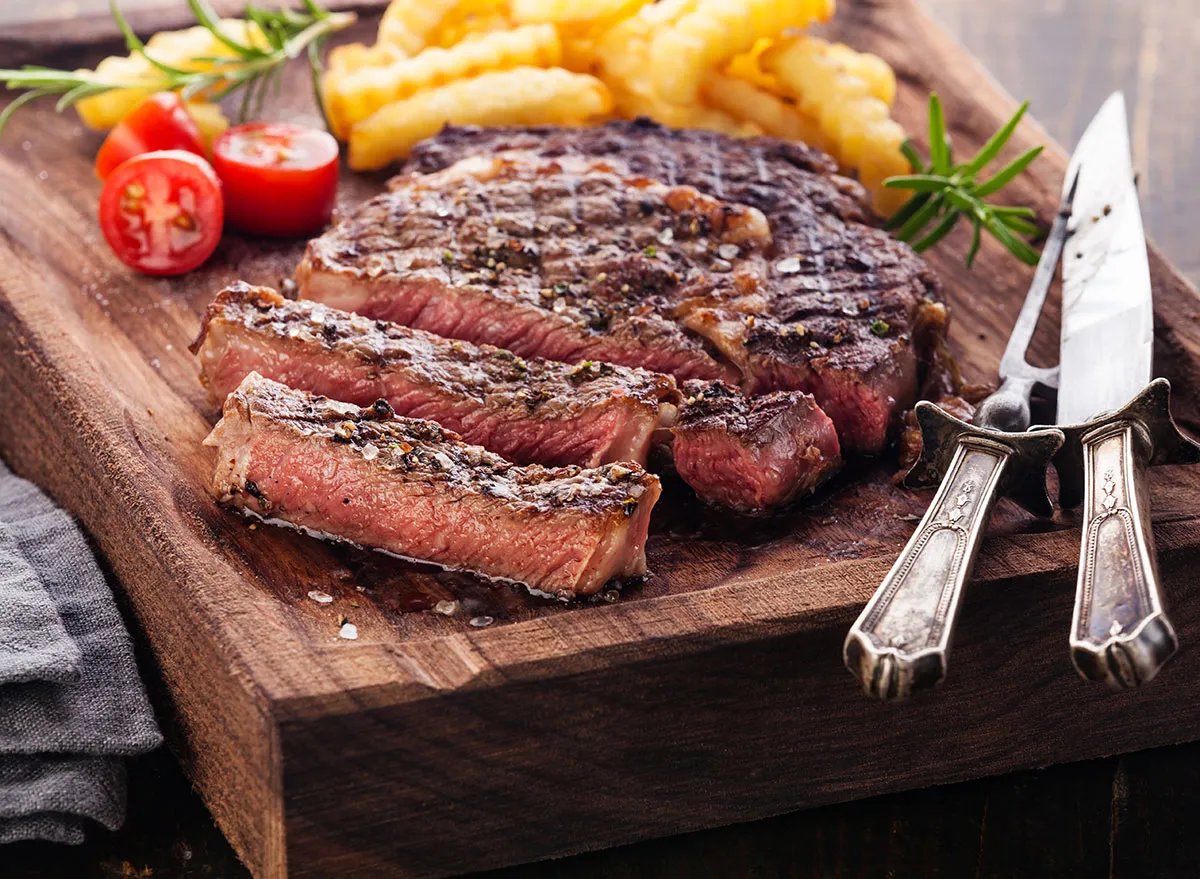The #1 Worst Food For High Cholesterol, According to a Dietitian

If you have high cholesterol, you're not alone. The Centers for Disease Control and Prevention (CDC) report that close to 94 million U.S. residents have high total cholesterol and that nearly half of those affected by the condition aren't currently taking medication to treat it.
While a variety of factors—including age; weight; alcohol and tobacco use; certain chronic health conditions; and even some medications—can increase your risk of developing high cholesterol, there's one easily modifiable variable you can take control of to help keep your cholesterol levels in check: your diet.
What is the worst food for high cholesterol, according to experts?

If you struggle with high cholesterol or simply want to avoid developing the condition, there's one food you may want to give up—or at the very least, reduce your consumption of—now: red meat.
"Red meat is particularly bad for blood cholesterol," says Jinan Banna, PhD, RD, a registered dietitian and associate professor of nutrition at the University of Hawaii at Manoa. "It contains both saturated fat and cholesterol, which, when consumed together in excess, can cause blood cholesterol to increase. This also increases the risk of cardiovascular disease," says Banna.
Eating foods high in saturated fats causes your body to produce LDL or "bad" cholesterol in your blood, resulting in high cholesterol. Saturated fats occur naturally in many foods—even plant-based foods—but they're primarily found in meat products.
By cutting back on fatty meats, you may experience more favorable cholesterol numbers. In fact, according to a 2020 review of research published in the Cochrane Database of Systematic Reviews, reducing saturated fat in your diet can not only help lower cholesterol but can also help reduce the risk of combined cardiovascular events by 17%.
Studies have also been done to examine the link between red meat and cholesterol, specifically. A 2019 study published in the journal Food & Function found that individuals who reduced the amount of red meat they ate by approximately half saw significant reductions in their cholesterol levels, with those who had the highest cholesterol levels at the beginning of the study showing the greatest improvement through this intervention.
New research even suggests that white meat may be just as bad for your cholesterol levels as red meat if the levels of saturated fat are the same. When participants were put on a diet high in saturated fat-heavy meat, they showed significantly higher levels of LDL cholesterol after 4 weeks compared to those on a low animal-based saturated fat diet.
What habits can help lower cholesterol?
While contacting a healthcare professional for tips on managing your condition is the best way to start safely lowering your cholesterol levels, research suggests some simple lifestyle interventions can help.
For starters, you're definitely going to want to reduce your intake of red meat. According to the American Heart Association, if you have high cholesterol, you should reduce saturated fat to less than 6% of total daily calories, which is about 11 to 13 grams of saturated fat.
In addition to cutting back on red meat and saturated fats, you can also make moderate exercise a regular part of your daily habits to lower cholesterol. A 2013 study published in Arteriosclerosis, Thrombosis, and Vascular Biology found that both walking and running were effective at lowering cholesterol levels in individuals with high cholesterol.
For more ways to get your cholesterol into healthier territory, check out these Eating Habits to Lower Your Cholesterol, According to Dietitians.
Read this next:








